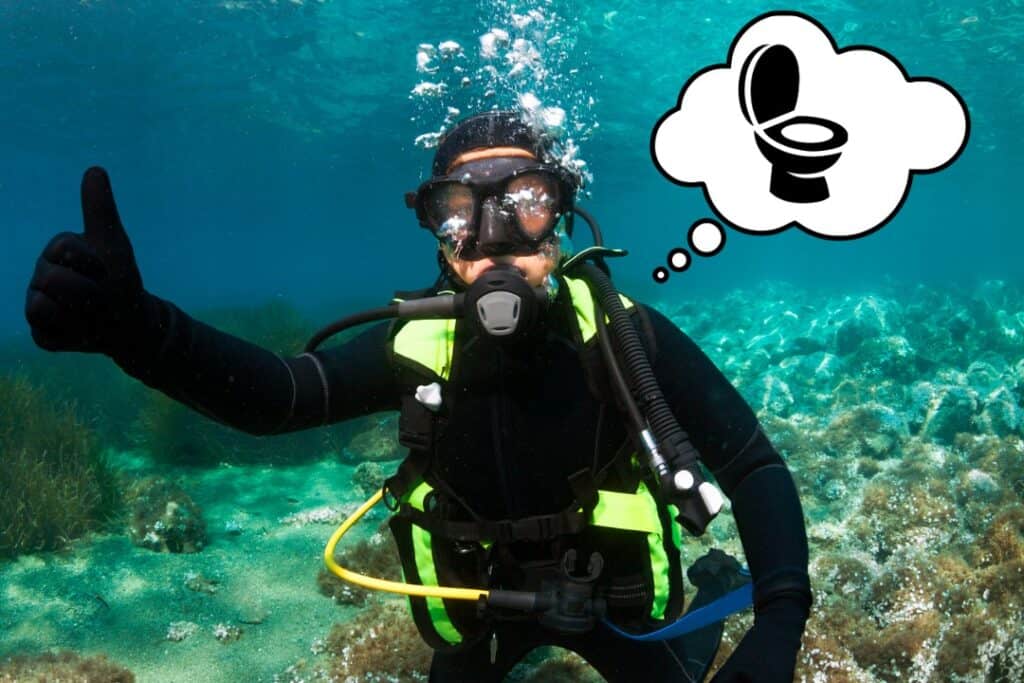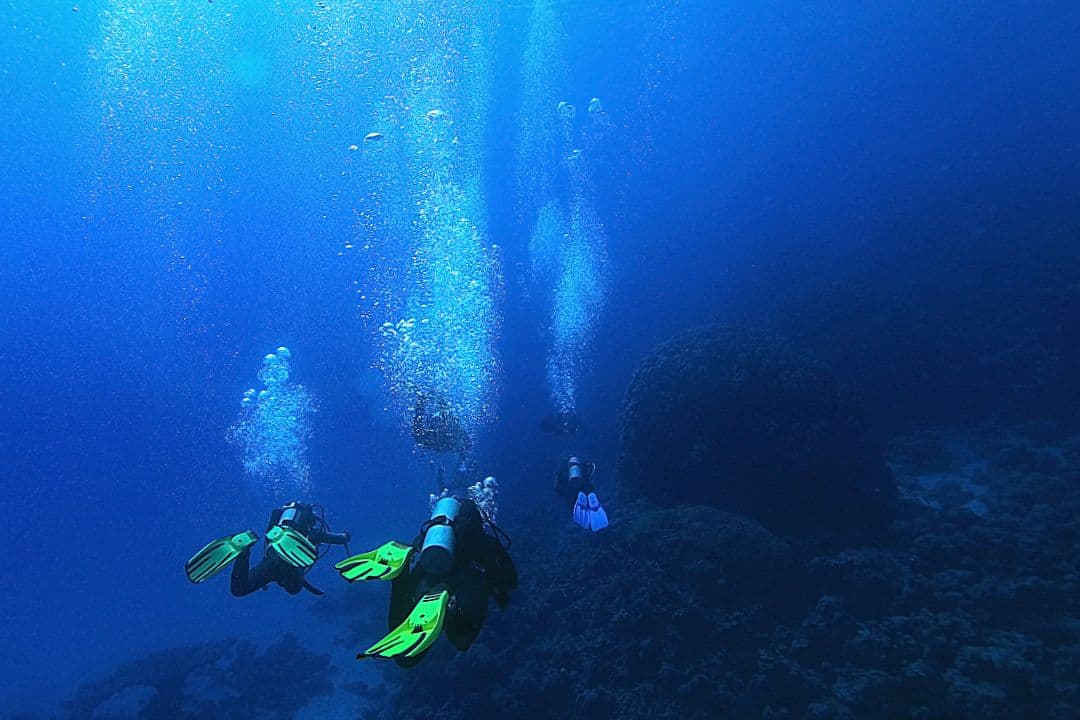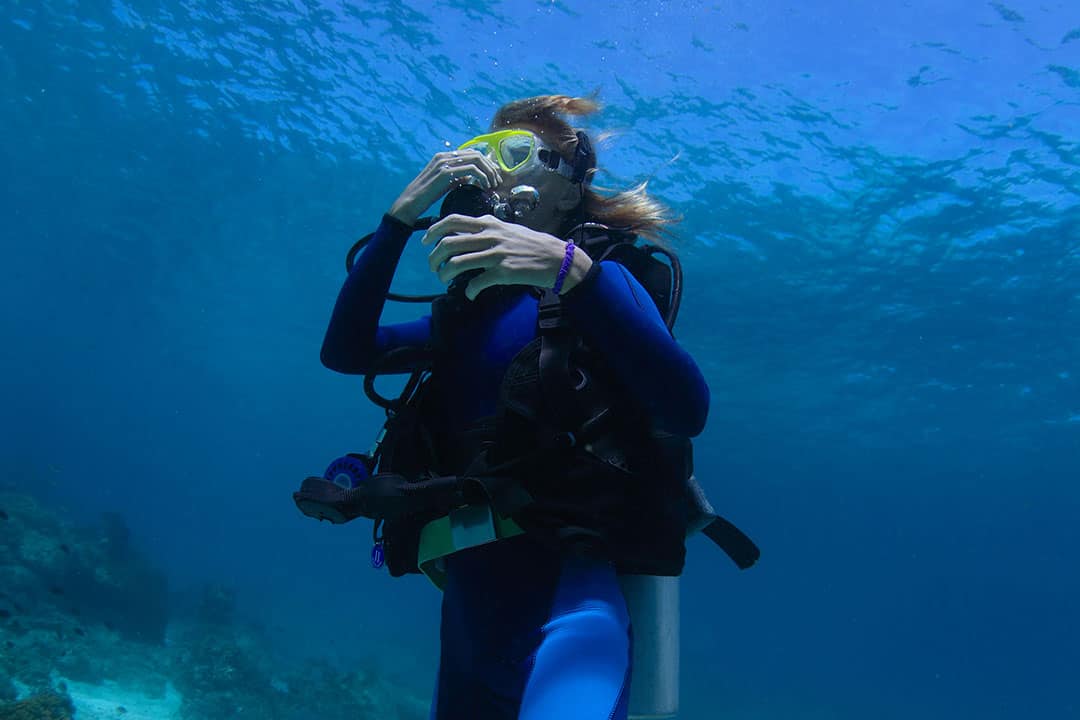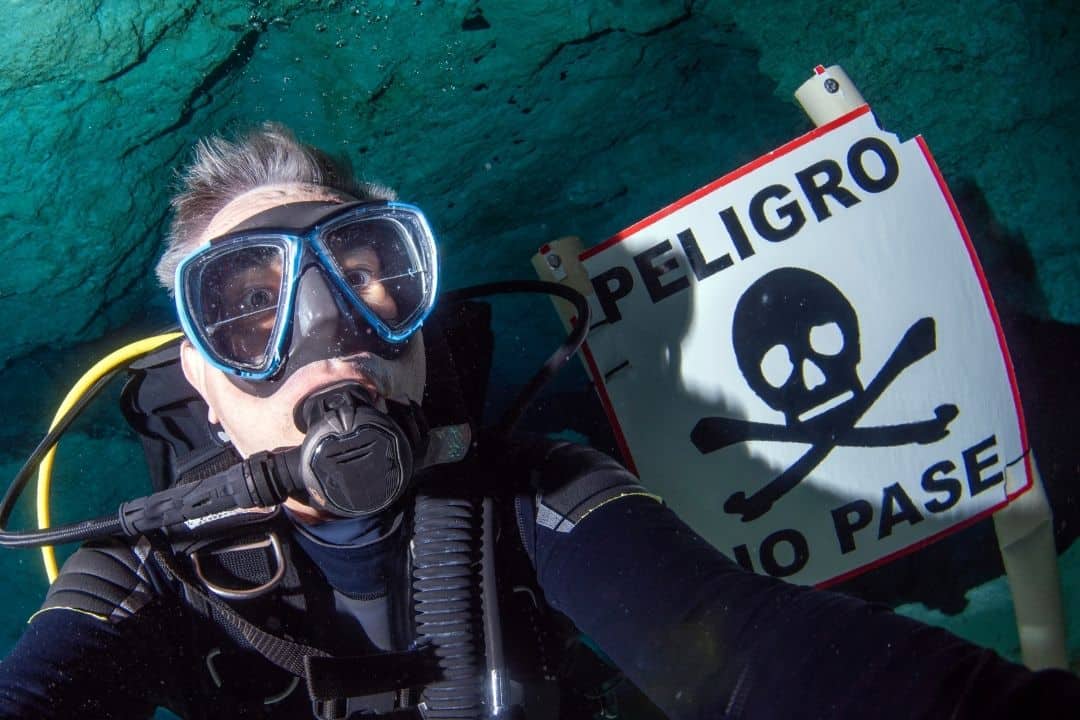Scuba diving is a fun and exciting adventure, but it can also have unexpected results. Have you ever heard people joke about needing to “poop” while scuba diving? Does scuba diving make you have to go to the bathroom?
In this article, we will look at the science behind the phenomenon of needing to go to the toilet while scuba diving and explain why it happens.
Does scuba diving make you poop?
No, scuba diving does not make you poop. However, you may experience gastrointestinal discomfort due to the pressure changes that occur during scuba diving. This effect is commonly referred to as “the bends” and can cause nausea, stomach cramps, and other gastrointestinal symptoms.
The Impact of Scuba Diving on Bowel Movements

Scuba diving can impact bowel movements, although the extent of this effect is not fully understood.
The pressure changes experienced while diving can cause gas to be released from the stomach and intestines, which can lead to an urge to defecate and, in some cases, actual bowel movements.
In my experience, this effect mostly happens when going up, when surfacing.
This is likely due to air expanding in your digestive system when the pressure decreases at the end of the dive.
Some people are more subject to it than others, and it is usually more an issue with freediving, especially when doing a lot of repetitive apneas.
Potential Causes of Bowel Changes while Scuba Diving
While the exact cause of these changes is not entirely understood, several potential factors may contribute.
One potential cause is the pressure changes when diving below specific depths.
Changes in pressure can cause the air spaces inside the body, including the intestines, to expand and contract, affecting movement through the intestines and gas production.
In addition, the physical exertion and stress of diving, especially for inexperienced divers, can decrease blood flow to the intestines, leading to slower digestion and movement of material in the digestive system.
This can lead to bloating, cramping, and an urge for a bowel movement. It is important to note that these potential causes of bowel changes are all normal and usually not anything to worry about.
Many divers find that these changes subside with experience and deep breathing techniques, and that the sensation of needing to defecate often dissipates when they reach the surface.
How to Avoid Unpleasant Bowel Movements While Diving
It is not fun to cut your dive short because you have to poop or stress and not be able to enjoy the dive because the only thing you can think of is going to the bathroom…
Fortunately, there are a few ways to avoid or minimize the unpleasant bowel movements that can accompany dives for some people.
Eating a diet rich in fiber and avoiding foods high in fat and sugar can help reduce the chances of uncomfortable bowel movement while diving.
It’s also important to stay hydrated and drink plenty of water before and after diving.
If you can, make sure to take your time to go to the toilet before a dive, and try to eat a light breakfast if you are going in the water first thing in the morning
In addition to eating a healthy diet, you should also take steps to reduce the physical stress that can accompany diving.
Avoiding overexertion can help you minimize physical stress and reduce the chances of uncomfortable bowel movements.
What to do if you need to poop during a dive?
Suppose you need to go to the bathroom while scuba diving, do your best to restrain yourself.
The feeling may pass, and you can continue the dive. If you cannot keep it in, signal your partner and ascend to the boat.
Once there, you can take care of your needs. Avoid taking off your wetsuit and trying to poop in the water, due to the risk of affecting your dive gear.
If you have diarrhea, and an accident in your wetsuit, ascend safely.
If the urge is too strong to wait, swim away from your dive buddies, making sure the current is moving away from them….


